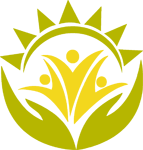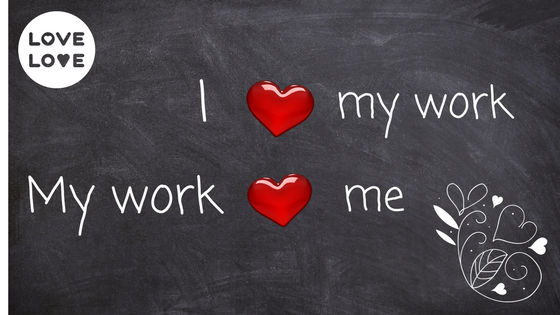Are you having difficulty influencing people to buy into your ideas? Are you wishing you had more impact at your job? Then, you may need to consider planning your conversations and building in flexibility in approaches.

Influence has some principles that might be helpful to remember in those conversations:
- What’s in it for them? (People do things for their own reasons.)
- Make sure to take a reading of ego and relationships and how that relates to results. Perhaps, reconsider the balance of those three.
- Are you employing the behavior of “If you don’t ask for it, you won’t get it” talk with that person?
- Remember that influence happens 1 person at a time, not as a group?
- Are you taking 100% responsibility for your own impact on that person? This means: do you realize that what you intend to impact doesn’t always translate to the impact the other person experiences?
- Realize that with influence conversations there are no guarantees: use each influence conversation as an opportunity to learn and improve.
And, it requires “influence flexibility” to know what approach to take with each person. Each person requires their own plan.
Start with a goal
How can you think about what you want that person to do, say, think or feel differently? And, as you consider that outcome, also think about whether it is possible to accomplish it one meeting, or if you will need more than one.

Determine what might motivate them
Even Dale Carnegie, the author of “How to Win Friends and Influence People, knew that to have influence, you needed to understand what a person was focused on, and what was important for them in the situation.
- What will motivate them in this situation?
- Are there reasons that you might provide that would influence them?
- What incentives can you provide that s/he would value?
- Or, is there something you could you remove, or use to apply pressure to influence them?
- What are his/her primary interests or concerns in the situation?
And, it’s important to address THEIR key interests, concerns, or frustrations first before bringing up your own if you want to influence a change.
Influence is a 2-way street.
As you prepare to have the conversation, check in with your own rigidity and bias:
- are you willing to be open to his/her ideas? Check your own needs against theirs? And, are you able to inspire them to a shared vision?
- If you know the places where you are not willing to be flexible, then make that clear up front.
- Don’t air all your grievances, or be overly emotional. Therefore, think through what you know you shouldn’t say or do because it might escalate or upset the situation. This is a good time to practice your own emotional awareness because you don’t want to lose focus.
- Is there common ground such as shared values or experiences?

Sometimes conversations don’t go as planned.
So, plan in advance what you will do if you need to go to “plan B.”
- Plan to excuse yourself if it isn’t going well to regroup
- Consider coming back to it later with new information, or when the situation is calmer.
If you weren’t able to achieve the goal you set, think about what didn’t work in your approach, and notice what you learned about the process of influence. Because learning how to influence people to hear your ideas, or perform better on a team, is a process of learning more about the people you work with or want to influence.
I can help you plan your next important conversation, clarify your goals, and rehearse to be sure you are ready and maximize your success. Book me at https://sarajanelowrybooking.as.me/



 We need a fresh start and conscious awakening. If you’re like me, your lives are flooded with information from every direction. And we have become very good at selecting the information we choose to let in, to affect us, to learn from, to judge others and ourselves by, and to believe. We filter that information by choice on how it fits our beliefs, our experiences, our worldview, and our desires. Inevitably, we reject the information that doesn’t seem to directly fit. Thus, if we find ourselves reacting to the content of information and it makes us feel uncomfortable, or afraid, or helpless, we reject it, or get angry, or pretend we didn’t see it.
We need a fresh start and conscious awakening. If you’re like me, your lives are flooded with information from every direction. And we have become very good at selecting the information we choose to let in, to affect us, to learn from, to judge others and ourselves by, and to believe. We filter that information by choice on how it fits our beliefs, our experiences, our worldview, and our desires. Inevitably, we reject the information that doesn’t seem to directly fit. Thus, if we find ourselves reacting to the content of information and it makes us feel uncomfortable, or afraid, or helpless, we reject it, or get angry, or pretend we didn’t see it.
 life.
life.



 t or activity, already skipping ahead mentally to the next thing. “I’m simply going from meeting to activity on my daily schedule,” she said, “but I’m not really there.” I’m driving my kids while thinking about my last meeting, and looking at a paper for my next conversation. I never have enough time to focus on the next innovation needed in my business. Then it’s time to put the kids to bed, and stay up till midnight responding to emails and preparing my presentation that’s in two days. I fall into bed at night just to wake up the next morning and start all over. I’m exhausted.”
t or activity, already skipping ahead mentally to the next thing. “I’m simply going from meeting to activity on my daily schedule,” she said, “but I’m not really there.” I’m driving my kids while thinking about my last meeting, and looking at a paper for my next conversation. I never have enough time to focus on the next innovation needed in my business. Then it’s time to put the kids to bed, and stay up till midnight responding to emails and preparing my presentation that’s in two days. I fall into bed at night just to wake up the next morning and start all over. I’m exhausted.”



